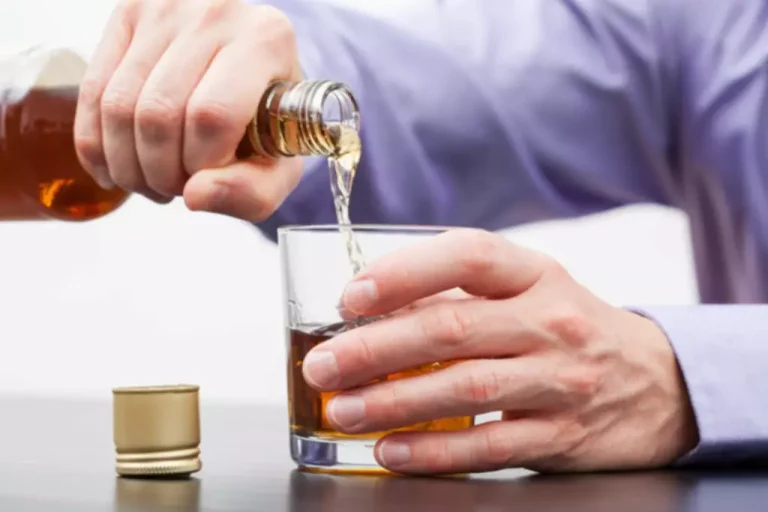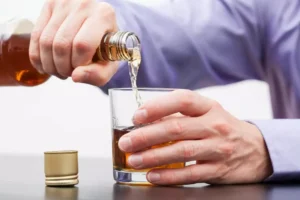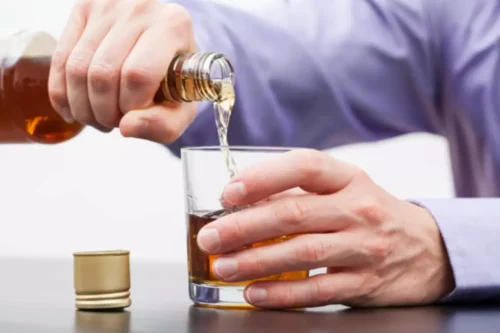
You may feel embarrassed or sensitive talking about your condition and it might keep you from participating in activities that you regularly enjoy. If hyperhidrosis affects your mental health, talk to a healthcare provider or a mental health professional. They can help you feel better about your excessive sweating after drinking body and the effect of overactive sweat glands. Night sweats can also be brought on by alcohol use disorder (AUD), a condition where you become dependent on alcohol to function. An important sign of AUD is drinking in dangerous situations and experiencing symptoms of alcohol withdrawal when not consuming alcohol.
Immediate Effects of Alcohol
While most antiperspirants are equally effective, unscented ones may be less irritating to people with sensitive skin or who are prone to contact dermatitis. Primary hyperhidrosis is also believed to have a genetic cause given that 35 percent to 56 percent of those affected will have a family history of the condition. Research suggests that an estimated 3% of adults in the United States between ages 20 and 60 have hyperhidrosis. These symptoms must greatly affect and cause you not to do well in school, work, or relationships. Give us a call or complete our convenient online form to get in touch with one of our treatment specialists.
Treatment and Management of Alcoholic Night Sweats
- By adhering to these health tips and preventative measures, you can reduce the chances of experiencing alcohol-induced night sweats and improve your overall well-being.
- The prevalence highlights the need for greater awareness of alcohol abuse – its causes, symptoms like alcohol sweats, withdrawal effects, and treatment options like detox and rehab.
- For people who already experience night sweats, including those going through menopause, consuming alcohol can worsen the sweating.
Consulting with a healthcare professional or addiction specialist can provide guidance, support, and appropriate treatment options. Hangover shakes are believed to be a result of changes in the nervous system that are similar to those seen in alcohol withdrawal syndrome. When alcohol leaves the body, the central nervous system and part of the sympathetic nervous system remain unbalanced, leading to symptoms like shaking and tremors 4. Low blood sugar levels due to the impact of alcohol on the body’s ability to monitor blood sugar can also contribute to hangover shakes. When blood sugar drops, it can lead to shaking along with other hangover symptoms like sweating and headaches. In severe cases, alcohol withdrawal can lead to a condition called delirium tremens, which is an extreme form of alcohol withdrawal.

Complete our convenient online form to connect with an Evoke Wellness treatment specialist.

Alcohol addiction is the compulsive need to drink, regardless of the consequences. It is when someone regularly drinks to excess and has developed alcohol dependence. Additionally, fatigue, a persistent sense of tiredness or weariness, often accompanies night sweats, potentially impacting overall well-being. These night sweats can be unsettling and disruptive to sleep patterns, requiring attention and understanding.
Levels of Care
Some people have a headache a few hours after drinking wine — especially red wine. But it’s different from a hangover, which may or may not include a headache. It’s possible that some chemicals in wine and how the body responds to them could result in a headache after drinking wine. But some people are more likely to have hangovers than others are.
- It typically occurs when alcohol intake is abruptly reduced or stopped after a period of heavy drinking.
- BetterHelp offers affordable mental health care via phone, video, or live-chat.
- But the only guaranteed way to prevent a hangover is to not drink alcohol.
- One of the most common symptoms of alcohol intolerance is facial flushing, which can also cause excessive sweating.
- Taking one glass of alcohol after another may cool you down mentally, but physically, you may feel the heat, quite literally!
Developing a tolerance to alcohol is another reason you might experience night sweats. As your body becomes accustomed to alcohol, you may need to consume more to achieve the same effects, which can worsen night sweats. Furthermore, if you abruptly stop drinking, you may experience alcohol withdrawal symptoms, which also include night sweats. This is part of your body’s attempt to regulate its temperature and remove toxins as it adjusts to the absence of alcohol. During the acute withdrawal stage, which generally lasts five to seven days, night sweats may be a common occurrence.
Talk with your healthcare professional if you’re concerned that frequent heavy drinking may lead to serious problems, such as alcohol withdrawal. Binge drinking, defined as consuming a large amount of alcohol in one session, can lead to various adverse effects. One of these effects is known as “hangover shakes,” where individuals may experience shaking in their hands or throughout their entire body. The severity of the shakes may vary depending on the amount of alcohol consumed.
- Alcohol can cause the heart rate to quicken or the heart rhythm to become irregular.
- They can help you feel better about your body and the effect of overactive sweat glands.
- Alcoholic night sweats occur when excessive sweating happens during sleep, particularly after alcohol consumption.
- As with the food you eat, the stomach and small intestine digest the alcoholic drinks you consume; most of this process occurs in the latter.
- Developing a tolerance to alcohol is another reason you might experience night sweats.
When heavy drinkers abruptly stop drinking, their bodies go into shock – craving the depressant effects of alcohol. Heavy, long-term alcohol use leads to physical and psychological dependence. For many people, night sweats may have links to their alcohol consumption for a particular occasion. Remember, seeking medical assistance is crucial for a comprehensive evaluation and tailored treatment plan. Healthcare professionals can provide the necessary support and resources to address alcohol dependency effectively and promote recovery. Keeping a comfortable sleeping environment is vital for preventing night sweats.


Night sweats can generally be described as unusual or excessive sweating during the night hours. Night sweats are one of the many signals that we’re drinking too much. If we heed the warning signs early on, we can prevent this issue from persisting or leading to other health challenges. With personalized strategies and comprehensive support, Zinnia Health is committed to helping you achieve a life free from the constraints of alcohol. Take the first step towards a brighter, alcohol-free future with Zinnia Health today.

The eccrine sweat glands are distributed over most of the body and function as the body’s primary cooling system. The apocrine sweat glands located primarily in the armpits and around the anus serve no regulatory purpose. You may feel better immediately after you begin treatment, or it may take a few weeks to months before you notice any changes to your symptoms. Your provider can let you know what to expect with each type of treatment option. You probably don’t think of being sweaty as a good thing, but it serves an important function.

